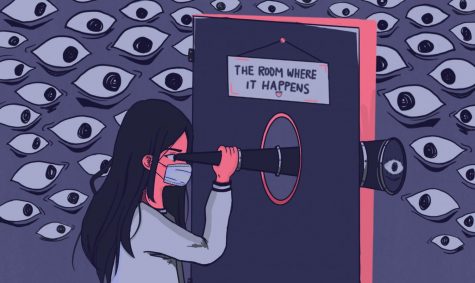Online APs: The Wrong Enemy
Due to COVID-19, the nature of the Advanced Placement (AP) exams had to change — the alternative being the entire cancellation of the program. In a survey conducted by the College Board (CB) in early spring, 91% of students expressed a desire to take the tests. As a result, the CB created a new, forty-five minute, online exam, one which received complaints for the lack of staggered test times, pleas for acceptance of submissions after the established timeframe — and a $500 million lawsuit. However, demands for universal times of these tests and the allowance of AP test submissions after the established time frame are implausible due to security reasons. Nevertheless, the College Board indeed could have ameliorated the situation by reducing the cost of the test, expanding the variety of questions and the time limit, providing more practice tests, and providing necessary disability accommodations.
For many students, AP exams provide an opportunity to gain college credit, allowing them to bypass classes in college and thus save thousands of dollars. For others, AP’s display academic rigor, granting an advantage in the college application process. The new AP best ensures that students will receive some form of validation for their work, but the nature of an online test warranted changes and security measures; these changes engendered numerous complaints.
Many of the complaints are represented in a class-action lawsuit; it claims against the CB a violation of the Americans with Disabilities Act, a breach of contract, and gross negligence. International students expressed additional disapproval with the universal time for the exam because some students were mandated to take the exam in the early hours of the morning. A handful of students have demanded the acceptance of their unsuccessfully submitted exams as an alternative to retaking the exam in June.
Indeed, students — especially those in Asian countries — have faced unfair disadvantages because the tests were administered at one time; however, the simultaneous administration of AP exams is an essential key to the prevention of cheating. In an email responding to an open letter to the College Board, Zachary Goldberg, a CB spokesman, elaborated, “The unique security protocols required for at-home testing only allow one global time for tests and makeup. . . our only other alternative would have been to cancel exams in certain time zones entirely.”
If cheating on standardized tests has been a problem for the College Board in years past, staggered testing dates would undeniably lead to collaboration because students taking the same exam at later dates would be able to gain access to a gamut of real test questions and topics. Prior knowledge of tens of different prompts and questions would give those taking the test later a leg-up over those walking in blind, as the specific types of questions asked, if not the general prompts themselves, would likely overlap in some part of the exam.
The claims of both a breach of contract and gross negligence are also untenable because allowing students to submit after the timeframe for the test would also facilitate cheating. The students who did not have the email submission option available have understandably complained that they should be allowed to submit their timestamped responses. But with a lack of technical supervision, there would be no way to ensure that they stayed within the time limit for their tests, thus jeopardizing the fairness of the test for other students.
In regard to the test questions themselves, the CB should have expanded the test by increasing the variety of the questions. AP exams typically take up to three hours to complete, so the drastic reduction to 45 minutes severely abridges the amount of content the CB can evaluate. This is particularly evident in the format of the history exams, where there is a single Document-Based Question testing one general idea, rather than the entirety of the AP curriculum. As a result, it decreases the validity of the test because it fails to allow students to show how much they know. If the CB indeed wants to create a test that captures the full scope of the students’ abilities, it must provide greater variety, thus as a corollary, a longer test.
But the mere fact that the College Board did not do so warrants a partial refund for the test. As the cost for grading a 45-minute test is significantly less than that of a three-hour test, it would only be fair for the cost to be reduced as well. In not doing so, it reveals inclination the CB has to take advantage of their leveraged position, as they know many students depend on their AP scores, especially those who are skipping courses in college to save tuition dollars.
The new status quo also ignores disability accommodations. As written in the Common Factual Allegations of the lawsuit, “The College Board announced prior to the administration of the at-home exams that certain disability accommodations that were previously provided would be modified, eliminated, or were deemed ‘unnecessary’ due to the new format.” In order to best support all students in the future, it is imperative that the CB allow students who receive a confirmation for legitimate disability to have an extended time limit for the test.
Lastly, the College Board should have included more than two sample tests, an appropriate measure especially when considering the unfamiliar truncated format. By doing so, it would significantly increase student awareness of the tests themselves.
Although the CB could have improved in those areas, it should still be applauded for its changes to its overall curriculum as well as its provisions of online resources. First, the College Board excluded material normally learned after spring break. It also offered content review sessions and timed practice exams on its YouTube channel, a praiseworthy attempt to account for possible discrepancies in students’ progress through online learning and distractions at home.
It is important to remember that the CB has impressively redesigned a test in a few months — a test that has existed largely the same for decades. Our torrent of criticism reveals our susceptibility to the availability bias, as our perception of this year’s AP’s is largely formed from the immediate examples we draw of its failure. We think of the vociferous complaints of international students, but fail to consider the ways staggered test times would compromise test security. We think of the exorbitant test price, but forget the students able to save thousands of dollars because they no longer have to take certain courses in college and can graduate early. We think of the one percent of students who had trouble submitting, but forget that 99 percent of students were successful. It’s time we start seeing the College Board not just for its shortcomings, but also for all the people it has benefited — especially in these tumultuous times.












